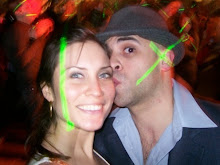Tuesday, March 18, 2008
A critical issue
I would like to begin with an observation not related to this week's readings, which may be so glaringly obvious it needs not even being discussed, but which I thought I'd bring up. We have read much about a perceived/anticipated "death" of the critical edition, and can reasonably say that there in fact have at least been, and will be, major changes in , due to approaching the work electronically, through the digital medium. This constitues a change in the conditions of fruition of the work. I would now like to point out how major changes in the process of editing will also be brought about by the changes in the conditions of production of literary works. So long as we are dealing with Dante or Shakespeare or Whitman, the problem does not present itself. But once we move to contemporary authors, a completely different issue arises: There have to be several writers living today or about to be born, who one day will be regarded as giants of literature, fully deserving of the kind of editorial attention we grant to the great masters of the past, and we can safely assume that the majority of them , if not all, will be writing on a computer--producing their works in the digital medium. This phenomenon will inevitably leave editors out of a crucial process in the creation of the work, the process of pre-publication authorial revision that takes place as the author writes, or a day, a week, even a year after the author first pens his manuscript. In traditional scholarly editing (Bowersian or Tansellian or McGannian), a crucial first step always involves the careful analysis of direct interventions on a written manuscript, especially in the case of authors writing themselves, by hand: changes, crossed out words or sections, notations or comments (I think of Petrarch filling his definitive RVF manuscript, now Vatican Cod. 3195, with countless "placet" and "non placet"), even the weight of the penmark and the characteristics of the handwriting, suggesting, for example, whether a passage was written in a trance-like rapture of inspiration, or if every word was pondered lengthily and reached through great struggle... In this day and age, plausibly, most of these processes leave no tangible trace behind: the author simply intervenes on his .doc file, saves it anew, and these steps in the revision process become lost forever, to the editor AND even to the author himself. What are the implications of all this?
Subscribe to:
Post Comments (Atom)

No comments:
Post a Comment